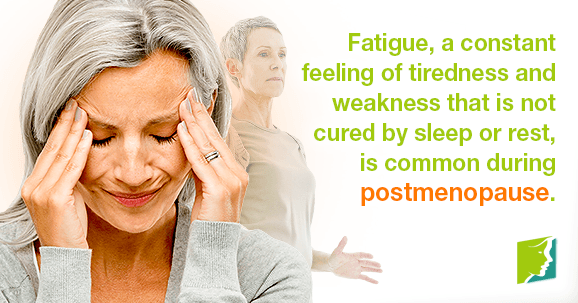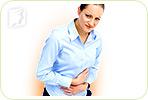Fatigue can mean feeling a lack of concentration and energy throughout the day, and this can be very upsetting and distressing for many women, especially when it starts taking a toll on relationships and everyday life. Fatigue during postmenopause is common, often due to the natural energy decline that comes with age as well as the lack of certain hormones that regulated mood and energy prior to menopause. Fatigue during postmenopause can be confusing, and many women have questions. Read on to find out answers to some of the most frequently asked questions.
What Is Fatigue?
Fatigue is a constant feeling of tiredness and weakness that is not always cured by sleep or rest. It normally means the woman feels a complete lack of energy and finds the thought of any kind of physical exertion too daunting.
Is Fatigue Normal during Postmenopause?
Fatigue is a common complaint among older adults, and it might occur suddenly or simply not disappear as a menopause symptom. There are many reasons for this, and they differ slightly from the reasons for fatigue during menopause, which can mostly be attributed to hormone imbalances.
What Are the Symptoms of Fatigue?
There are a number of possible mental and physical characteristics of fatigue, and these will be felt to a different degree by each sufferer. Some will experience extremely severe symptoms that have an adverse effect on everyday life, while others will feel symptoms more mildly and find they can still get on with things. A few symptoms are:
- Muscle pain
- Headaches
- Poor concentration
- “Brain fog” - trouble organizing thoughts
- Insomnia
- Depression
- Sensitivity to light
- Stomach pain
- Memory lapses
What Causes Fatigue?
In older women who have gone through menopause, reasons for fatigue are likely to be stress-based or indicative of an underlying issue. People tend to consume less protein as they get older, so the reason could be a simple dietary issue, or it could be a result of psychological stressors, such as fears about getting older, sadness at no longer being fertile, or even big life events, such as children leaving home or caring for elderly parents. These can all take a toll on energy levels. In addition, there are a number of medical conditions that lead to fatigue, such as thyroid problems, so it is important for postmenopausal women to have their fatigue checked by a doctor.
How Do I Deal with Fatigue?
Fatigue can be distressing and leave little time or energy to do what you really enjoy, so it is important to treat it. Fortunately, unless the fatigue is caused by an illness, there are a number of home remedies you can try in order to deal with it. Some ideas are:
- Eat small meals more regularly
- Avoid caffeine and alcohol before bed
- Get plenty of magnesium and iron in your diet
- Get plenty of sleep
- Try to exercise, or at least move around, for at least 20 minutes each day
- Read about vitamins that can combat fatigue
There is no cure for fatigue itself, but rather, treatment depends on dealing with the underlying cause. This could mean treating the illness causing it, or modifying your diet and lifestyle to give you more energy. Fatigue during postmenopause should be dealt with as soon as possible or it could get worse and lead to other issues, like anxiety or depression.
Sources
- Mayo Clinic Health Letter. (n.d.). Fatigue: Clues and news. Retrieved December 3, 2014, from http://healthletter.mayoclinic.com/editorial/editorial.cfm/i/357/t/Fatigue%3A%20Clues%20and%20news
- National Health Service UK. (2013). Chronic fatigue syndrome - Symptoms. Retrieved December 3, 2014, from http://www.nhs.uk/Conditions/Chronic-fatigue-syndrome/Pages/Symptoms.aspx
- National Institute on Aging. (2007). Unexplained Fatigue in the Elderly. Retrieved December 3, 2014, from http://www.nia.nih.gov/about/events/2011/unexplained-fatigue-elderly




